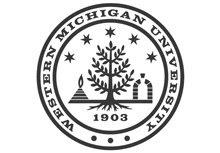Dr. Sam Ramrattan explains the metal casting process to high school students enrolled in the 2006 summer metal casting workshop
Last month, IME professor Dr. Sam Ramrattan hosted a weeklong metal-casting workshop for 10 high school students from Kalamazoo, Coldwater, Saginaw, Grand Rapids, Detroit, and Toledo, Ohio. He has been offering similar hands-on workshops for up to 15 area tenth-through-twelfth-grade high school students during each of the last seven summers.
During the students’ five-day campus visit, Ramrattan, a technical advisor to the American Foundrymen's Society and a Key Professor for the Foundry Educational Foundation, directs activities in the College of Engineering and Applied Sciences, Parkview Campus Metal Casting Laboratory.
Workshop topics include metal casting history, trends, and the relationship of manufacturing (molding, melting, filling, and finishing), engineering, quality, purchasing, marketing, and sales of castings. The students explore the use of computers, math, and science in metal casting.
In addition to their lab and course work, the students meet with WMU administrators to discuss university entrance requirements and expectations and with professionals from the foundry industry to review career opportunities in metal casting.
Field trips to metal casting industries provide students with opportunities to see real-world technology and to meet with professionals. This year’s attendees toured A.C. Foundry in Battle Creek, MI, Metal Technologies’ Three Rivers Gray Iron Plant, and SPX Contech’s die casting facilities in Dowagiac, MI. They also enjoyed activities in the Kalamazoo / Portage metro area.
Students who attend the program are sponsored by various chapters of the American Foundry Society (AFS) and the North American Die Casting Association (NADCA). Students are selected on the basis of an aptitude for math and science. There is no cost to the students who stay in WMU dorms and enjoy campus life.
Dr. Sam Ramrattan and Adil Abdelwahab, an IME graduate student, demonstrate how to pour molten aluminum into sand castings. After the demo, the high school students, who are seated behind the protective barrier, donned safety apparel and made their own sand castings.
WMU has had a casting metal program in various engineering curricula since the college opened over 100 years ago. Its most recent accreditation began in 1992 when Ramrattan joined the faculty. “Our goal is to produce hands-on engineers as an integral part of what we do in manufacturing engineering programs,” he said.
Metal casting is currently a program option in the industrial, manufacturing, graphics, and engineering management programs.
Dr. Sam Ramrattan demonstrates the mold making process








